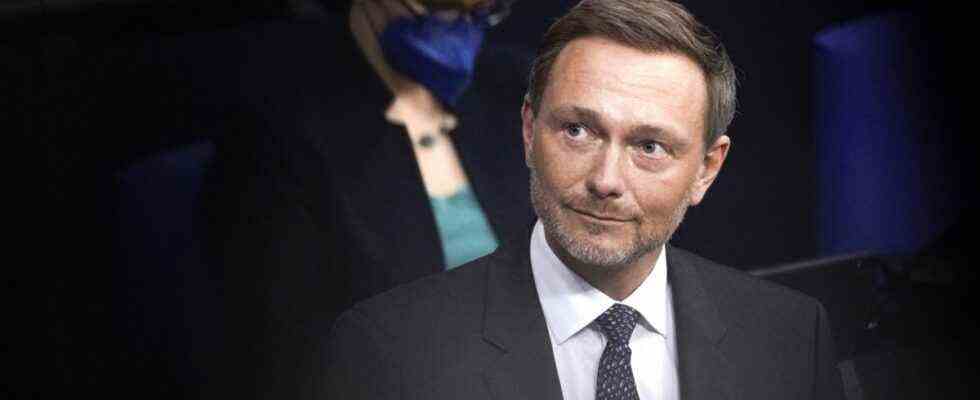On page 161 of the coalition agreement there are two paragraphs that the SPD, Greens and FDP wrote together at some point, but which apparently nobody has read for a long time. It is necessary, it says there, that “all expenditures are put to the test” and a “strict re-prioritization” takes place. “Spending cuts” for future investments are also announced.
At the start of the budget negotiations, Federal Finance Minister Christian Lindner recalled this passage again. It was of no use. The billions in demands that were made of him apparently even exceed the level of immodesty priced in every budget round.
Lindner is almost the architect of his financial dilemma
However, there is no need to pity Lindner. First, because he really wanted the job. He rightly sees it as the government’s center of power; After all, his FDP in the black-yellow coalition under Chancellor Merkel and Finance Minister Wolfgang Schäuble found out how it can work when there is a naysayer from the other camp in the finance department.
In addition, Lindner is almost the architect of his financial dilemma. The Greens would have liked to “reform” the debt brake, i.e. relax it. The SPD at least wanted to raise taxes. The FDP, on the other hand, has made compliance with the debt brake and the waiver of tax increases a condition. Now Lindner just has to see how he trims the dreams of his colleagues to normal without triggering an erosion of the traffic light projects.
During the pandemic, the government had to fight the crisis with billions in aid; anything else would have been economic madness. Before the pandemic, on the other hand, thanks to buoyant tax revenues and low interest rates, a balanced budget was no great art. The traffic light is now the first government in a long time to look at money. That’s uncomfortable, but it’s right.
Solving conflicts with money no longer works
For one thing, the monetary policy environment is changing. Inflation has risen and with it the likelihood that the European Central Bank will end its zero interest rate policy. Going into debt will become more expensive in the medium term; In addition, the state must be careful not to fuel inflation through spending programs.
On the other hand, the result of the old Groko principle of solving conflicts with money is not very convincing. Despite high tax revenues, important investments either failed to materialize or failed due to a lack of structures. Instead, billions flowed into favorite party-political projects such as the mother’s pension or the pension at 63. If the traffic light has to set priorities now, that could be an opportunity for a targeted investment policy.
However, the fact that the SPD, Greens and FDP did not have the strength to unambiguously name their priorities in the coalition negotiations is taking its toll. This flaw means that every minister is allowed to see himself and his projects as a priority in the budget talks. The resources in the energy and climate fund are only an apparently lavish buffer. They are already melting, partly because of the second helping of the KfW new building subsidy. The danger of getting bogged down also exists in times of tight budgets.

